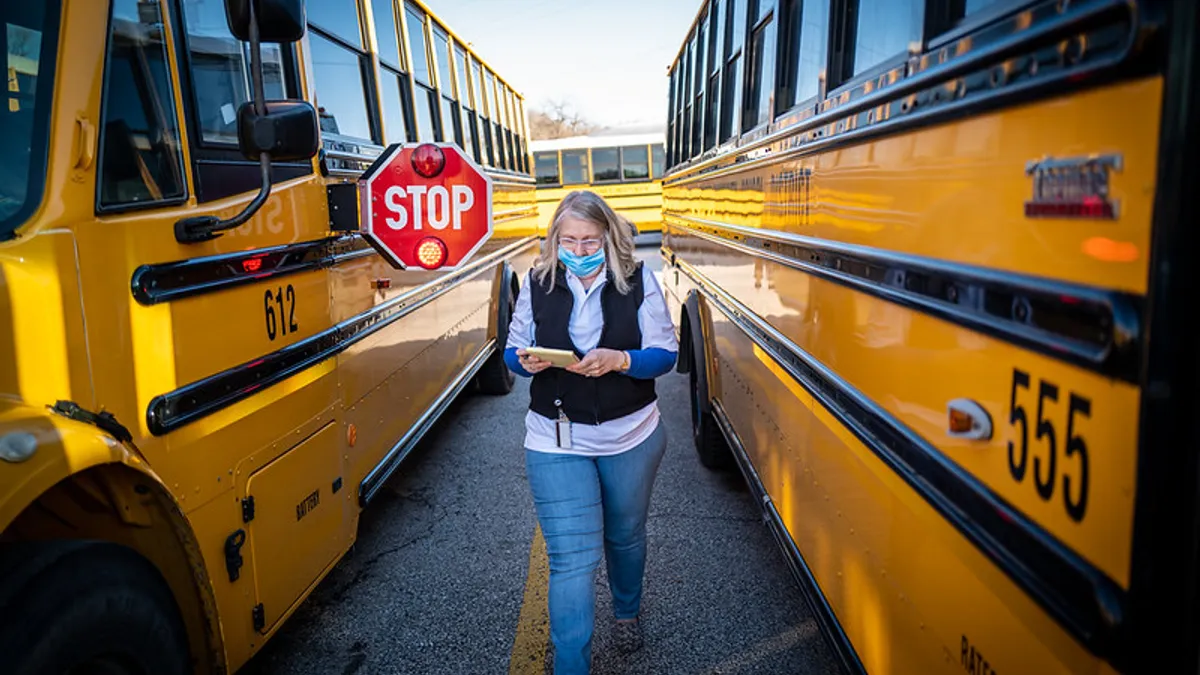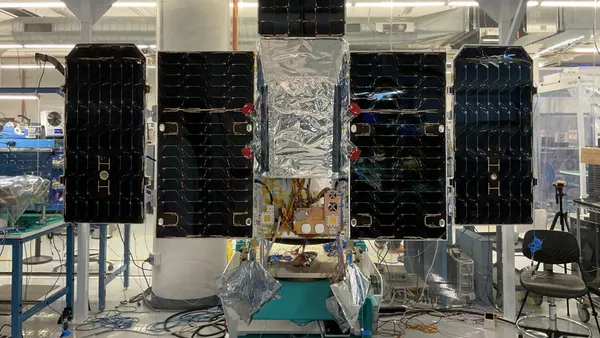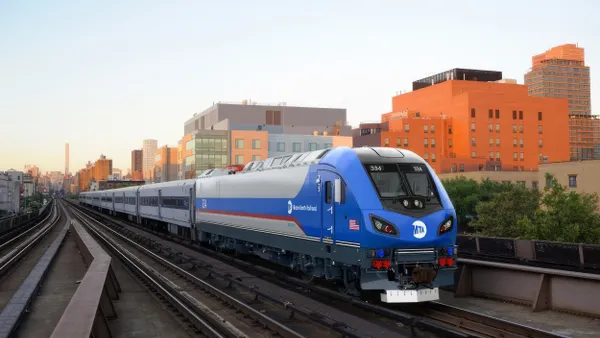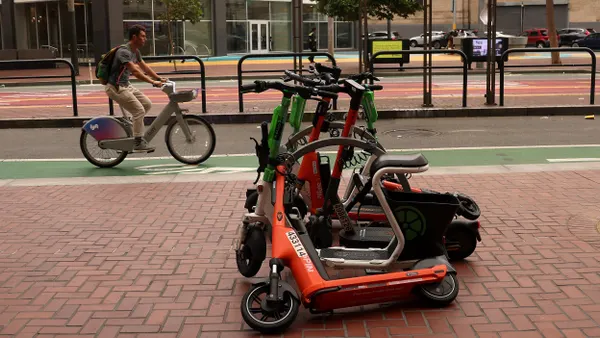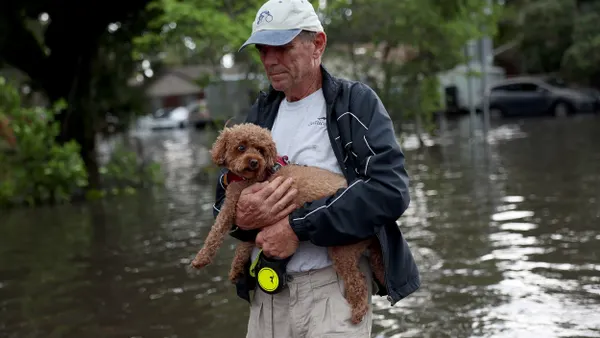Dive Brief:
- Hopewell City Public Schools in Hopewell, VA has plans to retrofit 31 school buses with wireless routers to provide Wi-Fi access to roughly 1,000 students who don’t have reliable internet access at home during the novel coronavirus pandemic.
- The buses will be deployed within a few weeks to densely populated areas of the city, the school district's supervisor of information technology Kris Reed told Smart Cities Dive. The wireless signal from the parked buses can reach homes within about 300 feet, or the length of a football field, he said.
- The school district is partnering with technology company Kajeet to install the wireless routers. The initiative costs about $29,000, and nearly half of the cost has been funded by grants, according to Reed.
Dive Insight:
The pandemic has brought a new sense of urgency for cities and school districts across the country to address the digital divide as students learn from home.
"On a normal school day, we have no issues with equity in the classroom as far as technology goes," Reed said, but providing students with an equitable opportunity for learning during the pandemic has been a challenge.
Some of Hopewell’s neighboring school divisions have put up internet access points outside of school buildings, allowing students to drive to the school and access the internet from the parking lot, according to Reed.
Reed and his team decided to think outside-the-box and use a more flexible solution. "Instead of having kids come to us for the internet, we’re going to take the internet to the kids." It’s unacceptable for students — especially on hot days — to sit in a car parking lot to complete their assignments, he said.
Hopewell is also the first division in Virginia moving to year-round schooling starting July 27, according to Reed, so the Wi-Fi could be useful throughout the summer as well if students remain remote.
The solution can also still be used when students return to the classroom, according to Reed. He said they can use the school bus Wi-Fi for students to complete their schoolwork during field trips or when they're traveling to-and-from sporting events.
"While it's a perfect solution right now, it's also a great solution moving forward," he said.
Hopewell isn't alone in its mission to bridge the digital divide amid stay-at-home orders. Last month, the San Francisco Unified School District (SFUSD), in partnership with the 1Million Project Foundation and the nonprofit organization EducationSuperHighway, installed around 25 Wi-Fi "SuperSpots" throughout the city for the 29% of district students without internet access at home.
Private companies and community partners have also stepped in to help address the learning gap, with Google recently announcing it would provide 100,000 Wi-Fi access points throughout California. The American Library Association is also encouraging libraries to keep Wi-Fi open for people to access the internet near the building.
To keep up with all of our coverage on how the new coronavirus is impacting U.S. cities, visit our daily tracker.



